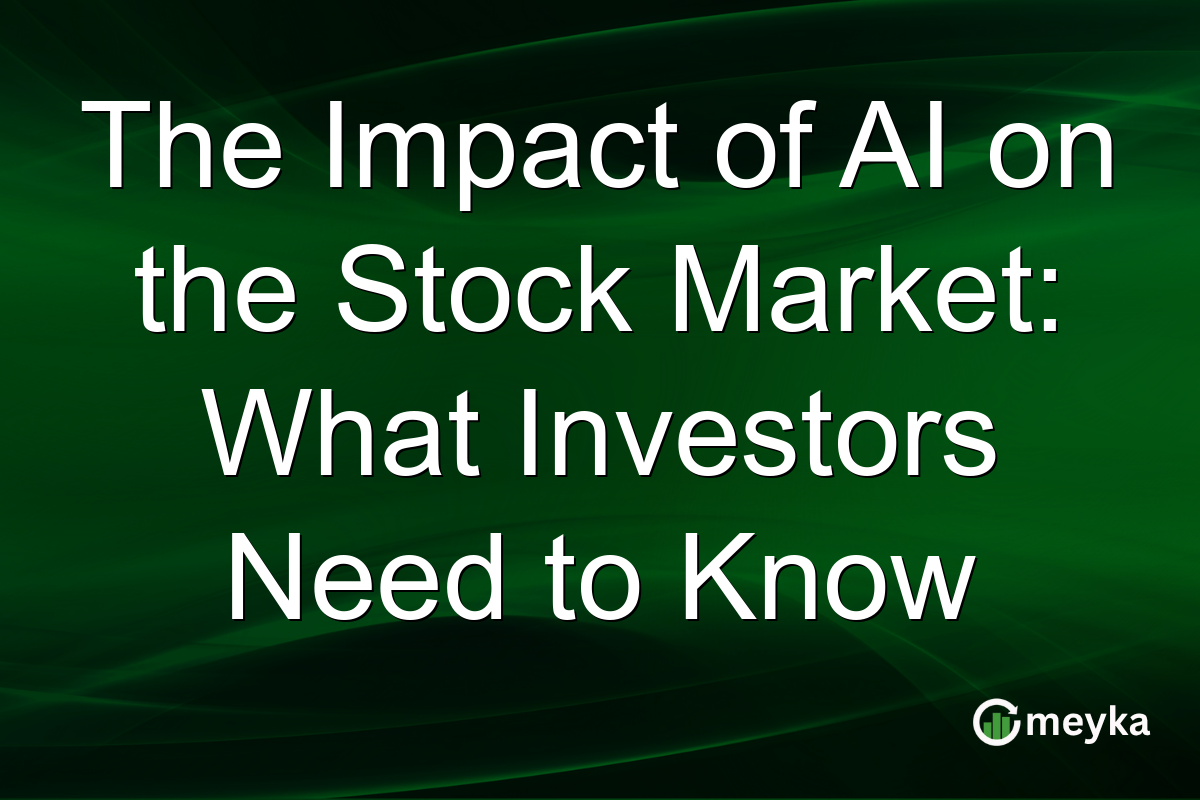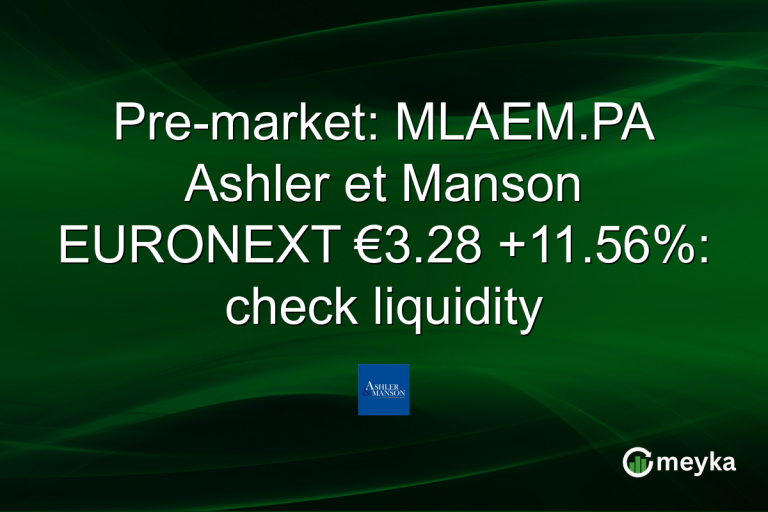The Impact of AI on the Stock Market: What Investors Need to Know
Artificial intelligence (AI) is revolutionizing the stock market. From automated trading to AI-driven analytics, the integration of AI is changing how investors make decisions. This evolution not only enhances efficiency but also introduces new challenges. In this article, we will delve into how AI is impacting stock trading, drawing on real-world examples and data insights to guide you through this dynamic transformation.
AI-Driven Trading Algorithms
AI trading algorithms are now commonplace among investment firms and individual traders alike. These algorithms analyze vast amounts of data quickly, making them more efficient than human traders. For example, firms can process data points from various sources, such as market transactions and news feeds, to execute trades in milliseconds. According to a report by CNBC, algorithmic trading accounted for around 60-73% of all US equity trading in 2023, showcasing the significant shift towards automation. Furthermore, AI can adapt to market changes, learning from past data to fine-tune strategies. This adaptability can lead to more profitable trades. However, the speed and complexity of these trades also raise concerns about volatility and market stability. Investors must consider these factors when leveraging AI in their trading strategies. The efficiency of these systems, while advantageous, also necessitates a thorough understanding of the underlying technology.
Enhanced Market Analytics
AI provides enhanced analytical capabilities, offering investors deeper insights than ever before. With AI, investors can analyze market trends, company performance, and economic indicators with precision. An example is sentiment analysis, where AI evaluates public opinion through social media and news, influencing investment decisions. This approach helps investors anticipate market movements and optimize portfolios. A study by Bloomberg showed that firms using advanced analytics reported a 15% higher return on investment compared to those using traditional methods. AI’s predictive analytics can forecast stock price movements by evaluating historical data and identifying patterns. This granular analysis supports timely and informed decision-making, enabling investors to capitalize on emerging opportunities while mitigating risks.
Challenges of AI Integration
Despite its benefits, AI integration in the stock market comes with challenges. One of the primary concerns is the ethical use of data. The vast data collection required for AI systems raises privacy issues and necessitates stringent regulatory oversight. Additionally, the complexity of AI systems may lead to unintended consequences or systemic risks if not properly managed. Another challenge is the dependency on AI models, which can malfunction or be subjected to cyber threats. As AI systems become more prevalent, the potential for market manipulation through AI is a growing concern. Regulatory bodies are working to address these issues, but investors must remain vigilant and ensure they employ robust security measures to safeguard their assets and data.
AI’s Role in Shaping the Future of Trading
AI’s rapid evolution signals a transformative shift in the trading landscape. As AI continues to advance, we expect even more sophisticated tools to emerge. These innovations promise to enhance market accessibility, allowing retail investors to compete more effectively with institutional players. Companies like Meyka, which offers real-time market insights and predictive analytics, exemplify how technology empowers all investors with data-driven tools. Looking forward, AI might facilitate personalized investment strategies, providing tailored recommendations based on individual risk profiles and financial goals. This customization not only optimizes performance but also aligns investments with personal values. As AI technologies develop, they hold the potential to democratize trading further, breaking down barriers that traditionally favored larger financial institutions.
Final Thoughts
In conclusion, AI is reshaping the stock market by enhancing trading algorithms and analytics while presenting new challenges. Investors must stay informed about these changes to navigate the complexities of modern trading environments. Leveraging platforms like Meyka can provide valuable insights, aiding investors in making informed, data-driven decisions. The future of trading is bright with AI, but vigilance and adaptation remain key to success in this evolving landscape.
FAQs
AI affects stock trading by using algorithms to analyze data quickly and execute trades efficiently, offering deeper market insights and predictive analytics.
Challenges include data privacy concerns, potential AI system malfunctions, and cybersecurity threats, requiring robust oversight and security measures.
Yes, AI-based platforms provide real-time insights and analytics that help individual investors make informed, data-driven investment decisions, leveling the playing field.
Disclaimer:
This is for information only, not financial advice. Always do your research.






